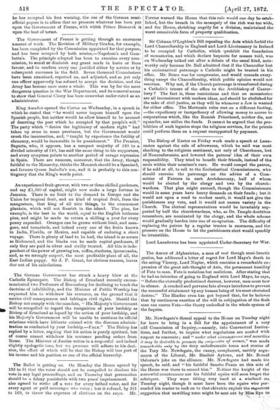An experienced fruit-grower, with two or three skilled gardeners, and
say £1,500 of capital, might now make a large fortune in Jamaica. There is no limit to the demand in Europe and the Union for tropical fruit, and no kind of tropical fruit, from the mangosteen, that king of all nice things, to the commonest plantain, which will not flourish in the island. The pine, for example, is the best in the world, equal to the English hothouse pine, and might be made to return a shilling a year for every penny expended. Oranges can be grown without limit, and man- goes, and tamarinds, and indeed every one of the fruits known in India, Florida, or Mexico, and capable of enduring a short voyage. There is plenty of land to be had, the island is as secure as Richmond, and the blacks can be made capital gardeners, if only they are paid in silver and civilly treated. All this is inde- pendent of the power of growing tea, coffee, cinchona, ipecacuanba, and, as we strongly suspect, the most profitable plant of all, the East Indian poppy. Sir J. P. Grant, for obvious reasons, leaves that out of his calculations.


































 Previous page
Previous page